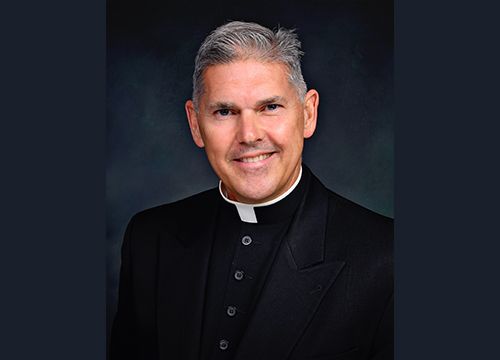Second Sunday of Easter – Acts 4:32-35; Ps 118: 2-4, 13-15, 22-24; 1 Jn 5:1-6; Jn 20:19-31
Mark your calendars. There is a very important anniversary on our horizon, and it could have a profound effect on Christian unity. June 13, 2025, will mark the 1,700th anniversary of the Council of Nicaea.
Why would this anniversary be so important, and what does it have to do with today’s readings?
The Council of Nicaea was called precisely to foster greater unity of belief regarding the nature of Christ. As part of that council, and as a concrete expression of the unity among all Christians, a common date for Easter was set — the first Sunday after the first full moon after the spring equinox.
In the centuries since the Nicaean Council, the unity of Christians has fractured. That disunity has even affected the date for the celebration of Easter.
Catholics and Protestants celebrated Easter last week, and we are completing the celebration of that day with the ending of the Octave of Easter this Sunday. For a variety of reasons too complicated to go into here, many of our Orthodox brothers and sister are still in the midst of their Lenten journey and will not celebrate Easter until May 2.
Through the years, there has been a desire among the Orthodox for the re-establishment of a common date for Easter as a visible sign of unity among Christians. Since the Second Vatican Council, the Roman Catholic Church has indicated that it would favor restoration of a common date for Easter so long as our brothers and sisters not in union with Rome would accept this change as well.
The most likely proposal to be accepted is that we would keep the Nicaean formula for determining the date of Easter, but that the date of the spring equinox would be determined from the geographical location of Jerusalem, since the equinox can fluctuate between March 19 through March 21 depending on your location on the globe.
Steps are being taken at the World Council of Churches to make this a reality for Easter 2025. It may seem a small thing, but it would be a major step toward Christian unity for all Christians to celebrate our greatest feast on the same day.
On this second Sunday of Easter, it is fitting that we should give thanks for any concrete steps towards Christian unity. Today we remember the witness of the unity of Christians in the first community of the faithful in Jerusalem. That witness powerfully drew many to belief in the Lord Jesus Christ.
Conversely, we need to be called to repentance that our disunity has caused damage to the credibility of the Gospel we are charged to preach. The Acts of the Apostles gives us the vision of a community of believers one in heart and mind, and that this unity had concrete consequences for the manner of their life and their care of the poor.
This unity of life and love is also expressed in our second reading from the First Letter of John. It helps us to understand that there is a triangular relationship between our love of God the Father, our love for Jesus Christ and our love for the children of God. There can be no separation between the three:
“Everyone who believes that Jesus is the Christ is begotten by God, and everyone who loves the Father loves also the one begotten by him. In this way we know that we love the children of God when we love God and obey his commandments” (1 Jn 5:1-2).
Because all of those who are begotten by him include all of our Christian brothers and sisters whether we are in union with them or not, we have an obligation to foster and restore that unity wherever possible.
My prayer is that this Easter’s call for unity among the disciples of the Lord Jesus Christ might bring us closer to that day when we more perfectly resemble in fact the post-Easter apostolic community.
Through our prayer, our concrete actions of simplicity and charity and, yes, even our common celebration of the date of Easter, we might be effective witnesses in calling all the nations to belief in our Risen Lord Jesus Christ.
Msgr. Timothy Keeney is pastor of Incarnation, Charlottesville.

